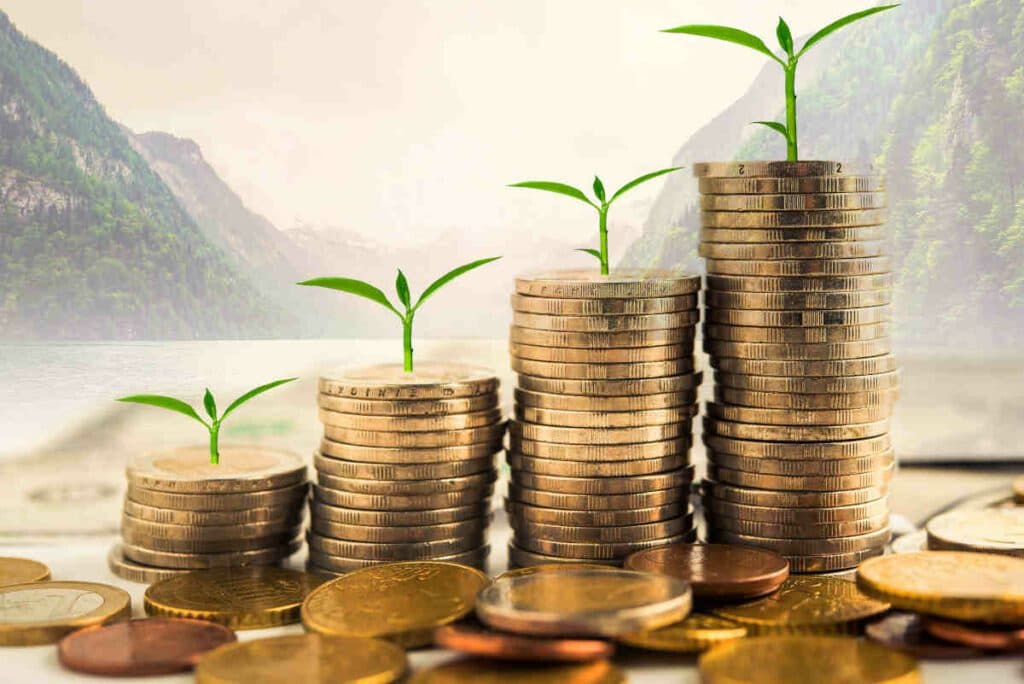Top 5 Low-Risk Investment Options in Nigeria
Published on: (Updated on: )

This post highlights the top 5 low-risk investment options in Nigeria. Most Nigerians shy away from investing not because they do not make enough money but because they consume too much, Nigerians spend billions on food daily. There is also a lack of proper education on the benefits of investments, most Nigerians are wary of trusting their money to outsiders and so avoid investing.
What is investment?
According to the Oxford dictionary, an investment is a process or act of investing money for profit. Investment is basically money set aside for the purpose of investing it in another business venture in order to make more profit. Profit may not necessarily be financial but can also be psychological or for the benefit of society.
Types of investments
Investments could be monetary, assets, intellectual property rights, basically anything that can be profited from in the future. Something as simple as saving money from the bank and getting some percentage interest on your savings can be termed as an investment.
There are generally two types of investments: we have High-risk investments and Low-risk investments.
| High-risk investments | Low-risk investments |
| All investments come with a certain amount of risk. Risks are a way of measuring the possibility of failure or success of an investment. High-risk investments are investments with a high percentage of failure or loss. However, if a high-risk investment goes well, the margin of profit is very high. In a high-risk investment, investors have to consider the possibility of both scenarios occurring. Examples of high -isk investments are forex, stocks, cryptocurrency and initial public offering (IPO). | These are investments that come with a reduced possibility of failure or loss, the margin of profit is also equally low. Low-risk investments enable investors to insure themselves against huge loss of capital or failure to recoup the capital invested. Low-risk investors include Savings accounts, Treasury bills, and bonds. |
In encouraging investment culture, there is the question of what to invest in? This question is answered below.
Here is a list of the top 5 low-risk investment options in Nigeria:
1. Real estate investment

Real estate investments are investments in physical assets like buildings and land. They are the most secure form of assets and are very profitable. The price of a building or land will double in ten years, there is also a high demand for property due to the increase in population. One of the fears of investment is liquidity, real estate investments are highly liquid and can be sold and converted to cash easily. Though real estate investments require a lot of capital, they have a very low level of risk. You can read more about the benefits of real estate investments here.
2. Fixed deposit accounts
Though this cannot be classified as a typical type of investment, it is however a good way to earn interest on your money. Instead of keeping money in the bank and getting charged by the bank for all sorts of services, you can instead open a fixed deposit account with a sizable sum and earn interest on your deposit for a specified period of time. Fixed deposits are totally secure and risk-free as banks are insured by the central bank of Nigeria.
3. Agriculture

This is one of the oldest forms of investments known to man. However, since the advent of crude oil and more people pivoting into the corporate world, the sector has been highly neglected. Investors can take advantage of the little competition in the sector and invest in the different branches of agriculture like livestock farming and fish farming.
4. Treasury Bills
This is a risk-free investment with a high rate of return. Investors can purchase Treasury bonds from the Central Bank of Nigeria (CBN) and hold them for a specified amount of months or years.
5. Federal Government Saving Bonds
Federal government-issued bonds are purchased by individuals from the government and are used to fund government-owned projects. They are risk-free and also have a high rate of return. They are also tax-free and can be easily liquidated. Government bonds are cheap to purchase and can be held for as long as twenty years.